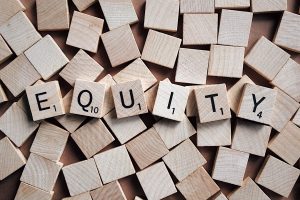National Fair Housing Month – April 2019
While imperative to advance throughout the entire year, efforts to end housing discrimination and elevate fair housing rights are emphasized during the month of April – National Fair Housing Month.
Fair Housing, Housing Insecurity, and Healthcare Equity
 What is fair housing?
What is fair housing?
Fair housing is the right to choose one’s residence in a manner that is free from unlawful discriminatory practices.
What is housing insecurity?
The United States Department of Health and Human Services’ (HHS’) Office of Disease Prevention and Health Promotion (ODPHP) defines housing instability (insecurity) as:
- Having trouble paying rent
- Overcrowding living conditions
- Frequently changing residence
- Residing with relatives
- Spending the bulk of one’s income on housing expenses – considered cost burdened if more than 30% of income goes to such expenses, severely cost burdened if over 50%.
The United States Department of Housing and Urban Development’s (HUD’s) Office of Policy Development and Research (PD&R) defines housing insecurity as several dimensions our housing problems people face including:
-
- Affordability
- Safety
- Quality
- Insecurity
- Loss of housing
How are housing security and healthcare equity related?
 According to the United States Department of Health and Human Services’ (HHS’) Office of Disease Prevention and Health Promotion (ODPHP), housing insecurity relates to healthcare equity in the following ways:
According to the United States Department of Health and Human Services’ (HHS’) Office of Disease Prevention and Health Promotion (ODPHP), housing insecurity relates to healthcare equity in the following ways:
- Individuals considered cost burdened or severely cost burdened have little money left over to cover healthcare expenses
- Households comprising individuals of color are almost twice as likely as white households to be cost burdened
- People with limited financial means may be forced to rent substandard housing that exposes them to health and safety risks such as vermin, mold, water leaks, and inadequate heating or cooling systems
- Overcrowding may affect mental health, stress levels, relationships, and sleep, and it may increase the risk of infectious disease
- Moving over three times annually – referenced as “multiple moves” – has been linked to adverse health outcomes in children; the more frequent movers of which are likelier to have chronic conditions and poor physical health
Fair Housing Act – 1968
 Signed into law by President Lyndon B Johnson on April 11, 1968, the Fair Housing Act protects people from discrimination when they are renting or buying a home, getting a mortgage, seeking housing assistance, or engaging in other housing-related activities.
Signed into law by President Lyndon B Johnson on April 11, 1968, the Fair Housing Act protects people from discrimination when they are renting or buying a home, getting a mortgage, seeking housing assistance, or engaging in other housing-related activities.
The Fair Housing Act prohibits discrimination in housing because of:
- Race
- Color
- National Origin
- Religion
- Sex
- Familial Status
- Disability
Consider exploring the following links housed on the United States Department of Housing and Urban Development website – the history of the Fair Housing Act, which types of housing are covered and specific discriminatory actions prohibited by the law.
Urban Institute
An unbiased nonprofit research organization – Urban Institute is focused on improving public policy and practice, strengthen communities, and transform people’s lives for the better. In conjunction with the United States Department of Housing and Urban Development, the Urban Institute released its 2012 Housing Discrimination Study: Housing Discrimination against Racial and Ethnic Minorities. Click here for the full report.
Findings
- Real estate agents and rental housing providers recommend and show fewer available homes and apartments to minorities than equally qualified whites
- Over the past three decades, black-white segregation has declined steadily
- Immigration has transformed the country’s population, bringing greater racial and ethnic diversity to the neighborhoods of both blacks and whites
- Hispanics and Asians are considerably less segregated from whites than are blacks
- Most whites live in more diverse neighborhoods today than they did three decades ago, reflecting the combined effects of immigration, greater minority access to white neighborhoods, and gentrification of some minority neighborhoods.
The Urban Institute conducted studies to more accurately document discrimination against same-sex couples and transgender homeseekers in three major American metropolitan areas – Dallas Forth Worth, Los Angeles, and Washington DC. Click here to read the full report – A Paired-Testing Pilot Study of Housing Discrimination against Same-Sex Couples and Transgender Individuals.
Findings
- “After conducting 2,009 paired tests, housing providers told gay men about one fewer available unit on every 4.2 tests than they told heterosexual men about, were slightly less likely to schedule an appointment with gay men, and quoted gay men average yearly rent costs that were $272 higher.”
- “Housing providers were about equally likely to schedule an appointment with lesbians and with heterosexual women, told them about and showed them approximately the same number of rentals, and provided comparable information about rents and incentives. Differences across treatment measures of availability and inspections consistently disadvantaged lesbian testers, but the differences generally were small and not statistically significant.”
- “Providers told transgender testers about fewer rentals than they told cisgender testers, regardless of the protocol used. Transgender testers who disclosed their gender status were less likely to be told about available rentals on average. They were, however, more likely to be allowed to view available units than transgender testers who did not disclose. It is unclear why.”
What can be done to advance fair housing?
The City of Seattle offers property managers suggestions on how to demonstrate fair housing, including yet not limited to gladly accepting inquiries from everyone, enforcing rules equally and without discrimination, as well as providing reasonable accommodations for people with disabilities among other approaches. Click here to learn more.
The Building the Beloved Community Initiative – organized by New York City based Fair Housing Justice Center (FHJC) – suggests 30 ways everyday people can do his/her/their part in advancing fair housing practices. Some are listed below, click here for the entire list.
- Learn about the history of discrimination and segregation
- Get to know your neighbors
- Give your business to companies that have demonstrated a commitment to fair housing
- Report housing discrimination your witness or experience
- Advocate for public spaces and housing in your community to be open and accessible to people with disabilities
University of Washington Resources
 Urban@UW – What is it?
Urban@UW – What is it?
A large network of scholars and practitioners with leaders and supporters engaging in different projects and initiatives across all three University of Washington campuses. Urban@UW develops cross-disciplinary and cross-sector collaborative research – aiming to strengthen connections between research and solutions to today’s urban challenges. Once such challenge is homelessness – hence the Urban@UW Homelessness Research Initiative.
Addressing Homelessness – University of Washington
Click here to learn more about the University of Washington’s response to Seattle’s homelessness crisis.